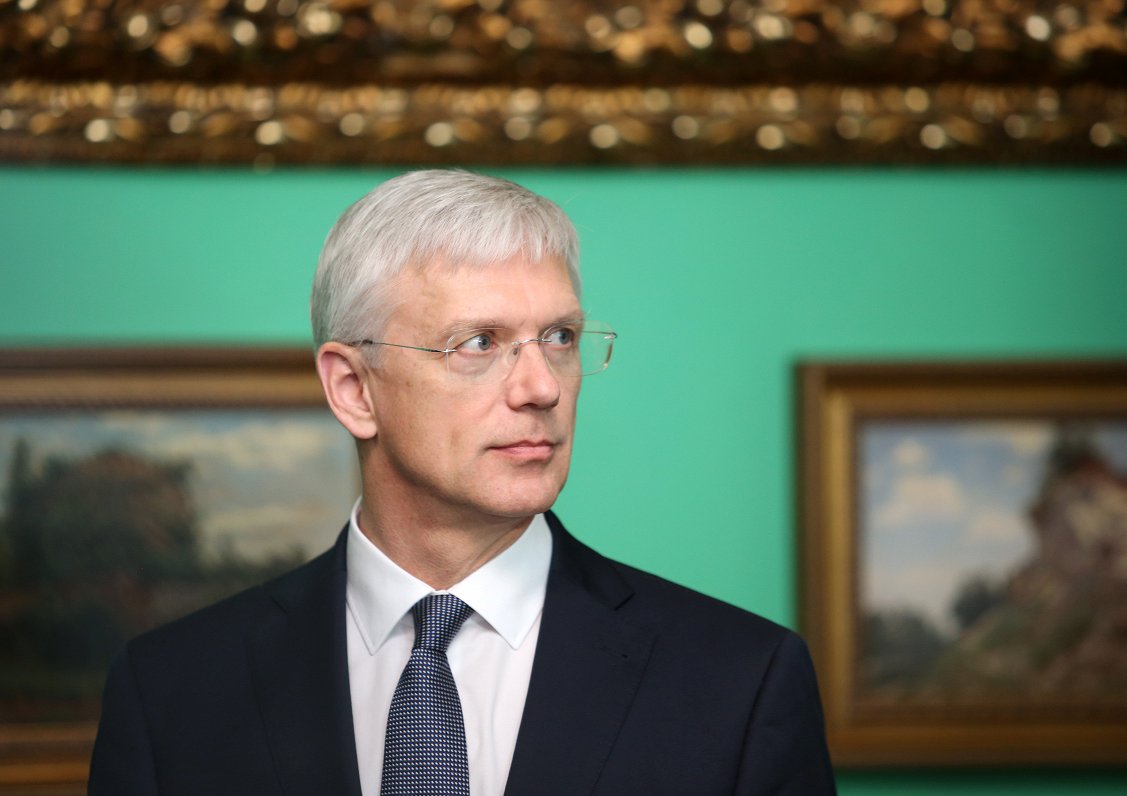The interview begins with an account of his formative years in the United States, his impressive academic background and how, after coming to Latvia for the first time in his teens, he pursued first a career in business and then made the switch to politics as part of the fledgling New Era political party led by Einars Repše.
Despite still being relatively young at 54 years of age, he can claim with some justification to be a veteran of the Latvian political scene, having held a ministerial portfolio in the government of Aigars Kalvītis from 2004-2006 and spending the last decade as a Member of the European Parliament in Brussels.
His path to politics was an interesting one, and his demeanor suggests he seems to have resisted the tendency towards cynicism that can afflict some politicians as the years roll and criticism mounts.
"I enjoy [politics] very much. The reason is this: it's one thing to criticize and say 'This is wrong'. It's another thing to actually have the ability to make it right. It's difficult but it's the challenge that I feel and, to me, being the Prime Minister gives me the greatest potential ability to influence things in a positive way," he says.
"The restrictions, the hurdles are many but it's the overcoming of the hurdles and the bringing people together that I very much enjoy, and I think that's how I became Prime Minister."
On his reasons for taking the position of Prime Minister after being in the frame to do so several times previously, he is remarkably candid, saying:
"I feel that I have absolutely nothing to lose. I don't owe anyone anything - literally, politically or otherwise."
He then explains what he means in terms that probably only a Latvian Prime Minister could manage: using an analogy from the world of choral singing:
"The way to his the high note is not to reach up for it from the bottom. The way to hit the high note is to come down on it from the top - sit down on the note, mentally. It has a big effect on how you do it. In this [political] case, neither I nor my party had any ambition after getting into parliament, realizing we were the smallest group. We didn't have any ambition to 'seize power' and use our elbows. We watched how one failed, how another failed... the ball simply rolled in our direction and in the end four other parties asked me to come."
The fact that no one party is dominant and that Saeima features a large number of new faces may actually work to the advantage of government stability and a collegial atmosphere, he argues, and certainly the early signs are that his administration will not lack ambition, with a major reform of oversight in the financial sector already underway and due to be completed by the middle of the year, according to the timetable he outlines in the interview.
But in order to clean up financial systems, not just in Latvia but across the European Union, the European authorities need to play a much larger role, he argues:
"If we have a patchwork of oversight which would be different in every member state... there will be different cultures, different understandings of the notion of risk or knowing your customer... We have to admit that Europe is a work in progress. We have to take the best of the best and throw out the worst of the worst... including oversight where the negative effects of oversight can negatively affect an entire region."
He also identifies reform and improvement of the education system as a major task if Latvia is to maintain and improve its economic future, with a shift away from selling Latvia as a place with good workers available at low wages to one where highly-educated workers can command high wages.
"I spend a lot of my time thinking how to explain what we're doing, so people can like it or not like it, but I want them to at least understand it. Criticize me for the right things, not the imagined things. None of what I say is to tell people good stories so they feel good. I, and our government say we need to make some pretty big changes in order to live better," he says.
"One of my political goals is to increase the amount of investment we have coming into our economy. We have a mismatch between talent and capital... too much has been geared towards exploiting our relatively cheap labor force. That's a road to nowhere."
"I think one of the reasons is not full trust that our country is a good one to invest in. We have, unfortunately, a reputation, that we're going to be changing through our actions, not words."
Listen to the full 45-minute interview via the audio file above.































